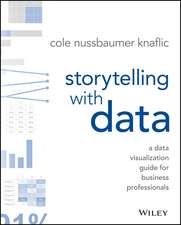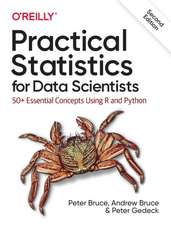Exploratory Factor Analysis: Quantitative Applications in the Social Sciences, cartea 182
Autor Holmes Finchen Limba Engleză Paperback – 2 dec 2019
Din seria Quantitative Applications in the Social Sciences
-
 Preț: 306.08 lei
Preț: 306.08 lei -
 Preț: 270.02 lei
Preț: 270.02 lei -
 Preț: 270.25 lei
Preț: 270.25 lei -
 Preț: 274.06 lei
Preț: 274.06 lei -
 Preț: 270.29 lei
Preț: 270.29 lei -
 Preț: 304.51 lei
Preț: 304.51 lei -
 Preț: 304.83 lei
Preț: 304.83 lei -
 Preț: 313.80 lei
Preț: 313.80 lei -
 Preț: 305.60 lei
Preț: 305.60 lei -
 Preț: 304.77 lei
Preț: 304.77 lei -
 Preț: 306.14 lei
Preț: 306.14 lei -
 Preț: 273.46 lei
Preț: 273.46 lei -
 Preț: 275.42 lei
Preț: 275.42 lei -
 Preț: 277.33 lei
Preț: 277.33 lei -
 Preț: 305.05 lei
Preț: 305.05 lei -
 Preț: 271.10 lei
Preț: 271.10 lei -
 Preț: 270.63 lei
Preț: 270.63 lei -
 Preț: 304.51 lei
Preț: 304.51 lei -
 Preț: 305.28 lei
Preț: 305.28 lei -
 Preț: 270.40 lei
Preț: 270.40 lei -
 Preț: 305.60 lei
Preț: 305.60 lei -
 Preț: 304.77 lei
Preț: 304.77 lei -
 Preț: 306.14 lei
Preț: 306.14 lei -
 Preț: 306.34 lei
Preț: 306.34 lei -
 Preț: 305.40 lei
Preț: 305.40 lei -
 Preț: 306.41 lei
Preț: 306.41 lei -
 Preț: 304.77 lei
Preț: 304.77 lei -
 Preț: 305.60 lei
Preț: 305.60 lei -
 Preț: 304.51 lei
Preț: 304.51 lei -
 Preț: 269.91 lei
Preț: 269.91 lei -
 Preț: 270.40 lei
Preț: 270.40 lei -
 Preț: 269.91 lei
Preț: 269.91 lei -
 Preț: 289.18 lei
Preț: 289.18 lei -
 Preț: 287.82 lei
Preț: 287.82 lei -
 Preț: 316.12 lei
Preț: 316.12 lei -
 Preț: 288.96 lei
Preț: 288.96 lei -
 Preț: 316.71 lei
Preț: 316.71 lei -
 Preț: 314.98 lei
Preț: 314.98 lei -
 Preț: 317.26 lei
Preț: 317.26 lei -
 Preț: 314.60 lei
Preț: 314.60 lei -
 Preț: 289.95 lei
Preț: 289.95 lei -
 Preț: 289.18 lei
Preț: 289.18 lei -
 Preț: 315.36 lei
Preț: 315.36 lei -
 Preț: 314.98 lei
Preț: 314.98 lei -
 Preț: 314.38 lei
Preț: 314.38 lei -
 Preț: 316.33 lei
Preț: 316.33 lei -
 Preț: 316.51 lei
Preț: 316.51 lei
Preț: 305.05 lei
Nou
58.37€ • 61.11$ • 48.30£
Carte disponibilă
Livrare economică 15-29 martie
Livrare express 04-08 martie pentru 23.18 lei
Specificații
ISBN-10: 1544339887
Pagini: 144
Dimensiuni: 140 x 216 x 11 mm
Greutate: 0.18 kg
Ediția:1
Editura: SAGE Publications
Colecția Sage Publications, Inc
Seria Quantitative Applications in the Social Sciences
Locul publicării:Thousand Oaks, United States
Recenzii
Finch provides a well-written and well-organized introduction to the conceptual and quantitative topics of exploratory and confirmatory factor analysis within a single, concise text.
This is a thorough and readable introduction to exploratory factor analysis
Cuprins
Latent and Observed Variables
The Importance of Theory in Doing Factor Analysis
Comparison of Exploratory and Confirmatory Factor Analysis
EFA and Other Multivariate Data Reduction Techniques
A Brief Word About Software
Outline of the Book
Chapter Two: Mathematical Underpinnings of Factor Analysis
Correlation and Covariance Matrices
The Common Factor Model
Correspondence Between the Factor Model and the Covariance Matrix
Eigenvalues
Error Variance and Communalities
Summary
Chapter Three: Methods of Factor Extraction in Exploratory Factor Analysis
Eigenvalues, Factor Loadings, and the Observed Correlation Matrix
Maximum Likelihood
Principal Axis Factoring
Principal Components Analysis
Principal Components Versus Factor Analysis
Other Factor Extraction Methods
Example
Summary
Chapter Four: Methods of Factor Rotation
Simple Structure
Orthogonal Versus Oblique Rotation Methods
Common Orthogonal Rotations
Common Oblique Rotations
Target Factor Rotation
Bifactor Rotation
Example
Deciding Which Rotation to Use
Summary
Appendix
Chapter Five: Methods for Determining the Number of Factors to Retain in Exploratory Factor Analysis
Scree Plot and Eigenvalue Greater Than 1 Rule
Objective Methods Based on the Scree Plot
Eigenvalues and the Proportion of Variance Explained
Residual Correlation Matrix
Chi-Square Goodness of Fit Test for Maximum Likelihood
Parallel Analysis
Minimum Average Partial
Very Simple Structure
Example
Summary
Chapter Six: Final Issues in Factor Analysis
Proper Reporting Practices for Factor Analysis
Factor Scores
Power Analysis and A Priori Sample Size Determination
Dealing With Missing Data
Exploratory Structural Equation Modeling
Multilevel EFA
Summary
Notă biografică
W. Holmes Finch (Ph.D. South Carolina) is the George and Frances Ball Distinguished Professor of Educational Psychology in the Department of Educational Psychology at Ball State University. Prior to coming to Ball State, he worked as a consultant in the Statistics Department at the University of South Carolina for 12 years advising faculty and graduate students on the appropriate statistical methods for their research. Dr. Finch teaches courses in statistical and research methodology as well as psychometrics and educational measurement. His research interests involve issues in psychometrics, including dimensionality assessment, differential item functioning, generalizability theory and unfolding models. In addition, he pursues research in multivariate statistics, particularly those involving nonparametric techniques. He is the co-author of Multilevel Modeling Using R (with Holden, J.E., & Kelley, K., CRC Press, 2014); Applied Psychometrics Using SAS (with French, B.F. & Immekus, J., Information Age, 2014); and Latent Variable Models in R (with French, B.F., Routledge, 2015).








